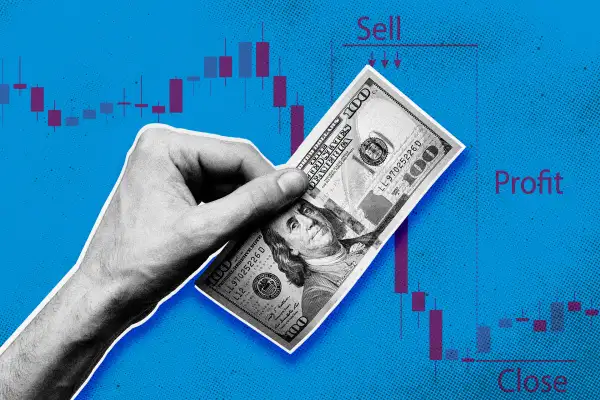Investors Made Billions Betting Against Bank Stocks. Now They’re Under Scrutiny
Money is not a client of any investment adviser featured on this page. The information provided on this page is for educational purposes only and is not intended as investment advice. Money does not offer advisory services.

Bank stocks may be struggling, but some investors are making a serious profit amid the volatility.
Short sellers betting against regional bank stocks have accrued more than $7.5 billion in profits so far this year, according to data cited Friday by The New York Times. The banking sector has been struggling in the aftermath of several high-profile bank collapses that have prompted concerns about the health of the industry overall. Regional banks have been hit especially the hard.
All the short selling activity has some experts worried that these investors are stoking panic about the banking system in order to boost their profits.
Here's what investors should know.
Short selling is an investing strategy that allows traders to profit when stocks decline in value.
Here’s how it works: A short seller borrows shares of a stock when they expect the price to fall. They sell them at one price, and then buy them back later — hopefully at a lower price. They pocket the difference between the price they sold the stock for and the price they paid to buy it back.
If this sounds familiar, it’s because the strategy also made headlines during the recent meme stock frenzy. In 2021, enormous gains in stocks of struggling companies like GameStop and AMC were fueled by retail traders betting against institutional short sellers in what’s called a “short squeeze.”
Short selling is legal. But market manipulation — as in, intentionally trying to deceive investors by controlling or artificially affecting a security's price — is illegal.
Why are experts worried about the short selling?
This time around, what has experts worried is the fact that short selling activity is ticking up for banks where there’s no logical reason for stocks to fall. If an investor with a short position turns to social media to cast doubt on a bank’s financial health in order to sink share prices, that’s considered market manipulation.
Last week, the American Bankers Association (ABA) wrote an open letter to Gary Gensler, chair of the Securities and Exchange Commission (SEC), pointing out that even financially sound banks are seeing a major uptick in short selling activity. The association also noted extensive social media chatter around the banking sector that “appears disconnected from the underlying financial realities.”
The ABA called for the SEC to take “appropriate enforcement actions against market manipulation and other abusive short selling practices.”
JPMorgan Chase CEO Jamie Dimon has also called on regulators to take a closer look at short selling in the banking sector. If investors are colluding or using social media to ensure their short positions profit, the SEC "should go after them, and vigorously," he told Bloomberg Television this week.
The government may be already taking note. Federal criminal prosecutors are looking into short seller activity in bank stocks, and other regulators are looking into potential market manipulation by short sellers, Reuters reported Wednesday.
Should investors short bank stocks?
In general, financial experts say that despite the potential payoff, short selling is a risky strategy for everyday investors. If stock prices go up instead of down, for instance, investors are on the hook to buy the shares back for more than they paid for them — and in theory there's no limit to how high prices could soar.
While it may be tempting to bet against a stock you're convinced will fall, keep in mind that short selling requires a solid understanding of the stock market and a high risk tolerance. Everyday investors are likely better off sticking to a well-diversified portfolio that aligns with their goals, time horizon and the level of risk they're willing to take on.
The 5 Biggest Investing Mistakes Beginners Need to Avoid, According to Financial Advisors
Regional Bank Stocks Are in Turmoil. Is It a Buying Opportunity for Investors?

